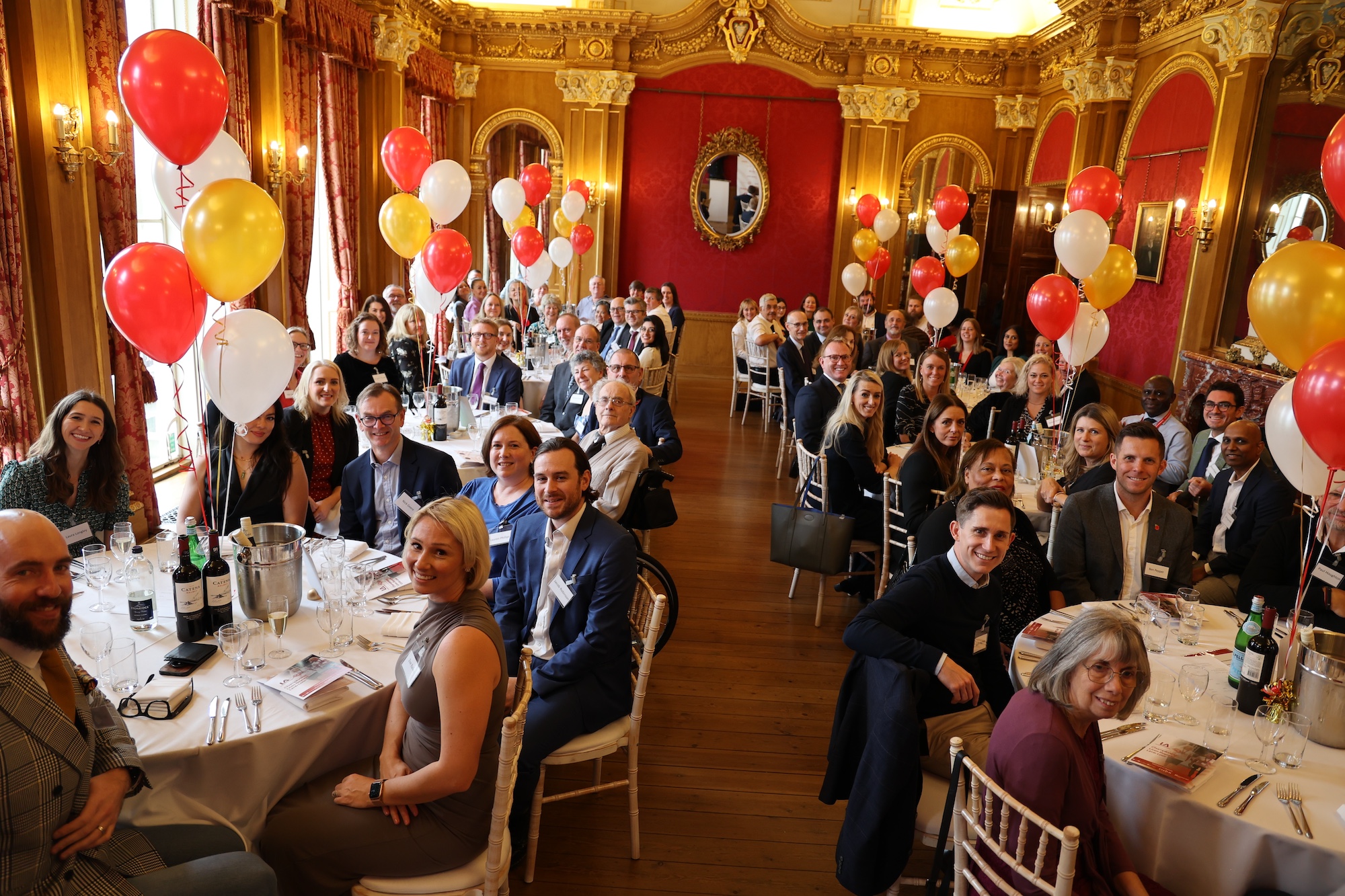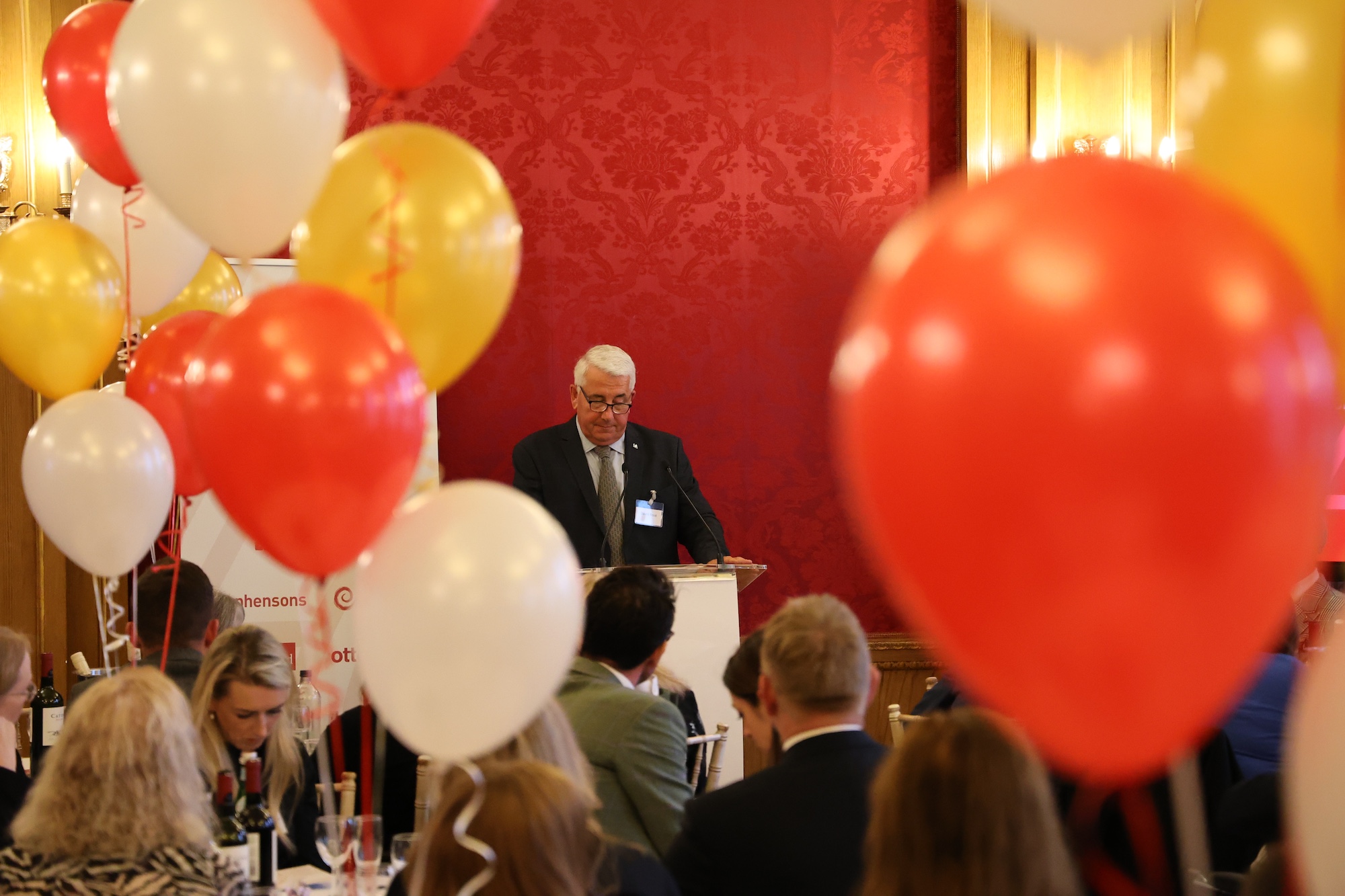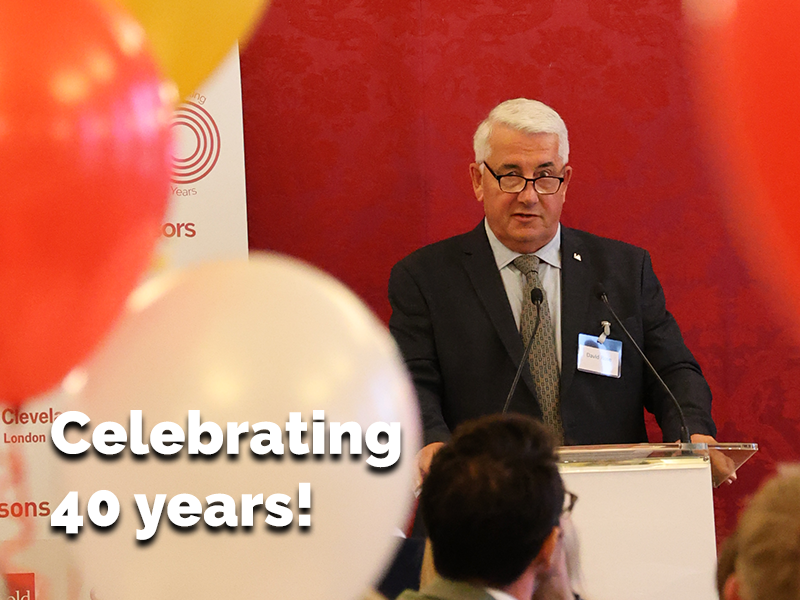Well it’s often said that time flies, but seriously, where has the last forty years gone? From a relatively small beginning, we today can proudly count ourselves as being the leading UK charity providing advice and practical support to the civilian limb loss and limb difference community.
But it would be remiss of me as Chair of Trustees not to acknowledge the debt of gratitude we owe to Sam Gallop, our visionary founder and our first Chair of Trustees. Sam was a RAF spitfire pilot in the Second World War and he experienced the loss of both legs when he unfortunately crashed his aircraft. He later became a leading member of BLESMA, the British Limbless Ex Servicemen’s Association, who recently celebrated their own 90th anniversary in 2022!
Sam was concerned that although there was a good support structure available for military service personnel who had experienced limb loss, there was nothing out there for civilian amputees. And when I say “nothing”, I mean literally nothing! And this is me speaking from direct personal experience. My life changed in a split second on 6th September 1979 when I experienced the severe trauma loss of most of my right leg at the age of 23. And I was thereafter launched into a different world as an amputee with so many questions, and nobody available to offer any answers. Those early years of my own rehabilitation pathway were often fraught with difficulty – but I was lucky, I had the love and support of family and friends and that got me through those early challenges. But not everybody was a fortunate as I was and this where Sam Gallup ‘stepped’ in.

He was a visionary character and he decided to do something about the lack of any meaningful support structure for civilian amputees away from the hospital environment, and the prosthetic limb centres. So forty years ago the National Association for Limbless Disabled was formed. In those early years, we were a campaigning and lobbying organisation, without the service delivery focus of today’s LA. However, there was at that time a considerable need for this work to be undertaken. Sam was a very effective advocate for change and he lobbied and campaigned in Parliament for improved prosthetic services for the civilian limb loss community. In fact I would argue that without Sam’s powerful influence, the 1986 McColl Report on the Artificial Limb and Appliance Services would not have happened. This report changed almost everything and I would argue that the excellent prosthetic services we have available today is in no small part thanks to the work of Sam Gallop and Professor Lord McColl’s groundbreaking report.
When I started writing this blog, I found myself going back over so many memories of Sam Gallop and the way his influence changed my life. It was therefore with great sadness that I learnt that Sam had passed peacefully away towards the end of 2023, at the grand old age of 101. His was truly a life well lived!
So over the intervening four decades much has changed. My first prosthetic limb in 1979 was a crude Hanger pylon, that was effectively Second World War issue. And today I have an amazing Ottobock C-leg with a micro processor-controlled knee joint. And the work of our charity has also evolved over this period as well. Almost 25 years ago we created the Volunteer Visitor programme to offer direct advice and support to people prior to and post amputation. There had never been anything like this before and today, with the generous support of the National Lottery Community Fund, our new Volunteer Visitor peer-to-peer support programme continues to provide vital one-to-one support for individuals, both pre- and post-amputation, who require practical information and emotional support through their limb-loss journey.

Let me briefly share my personal reflection on the need of peer support in the limb loss community – as an amputee and as Chair of Trustees.
Peer support is a crucial part of the rehabilitation journey for us as amputees. And a vital perspective here is that the impact of limb loss on an individual is unique – no two amputees are the same. In reality, this means that two people of more or less the same age and with the same level of limb loss, will achieve two totally different levels of rehabilitation recovery. Furthermore, one of these two theoretical amputees may achieve their rehabilitation goals without the need for peer support, but the second person will need the support of amputees who have the lived life experience. And this doesn’t only apply to amputees in the early stages of their limb loss journey. As one of our VV volunteers recently commented: “As an amputee, the rehabilitation doesn’t stop – it just changes over time. As amputees we have to constantly adjust and we have different needs over that timeframe”. So again in reality, we may be asked for help by an amputee who is many years into their own limb loss journey. We don’t create barriers for those who wish to access our support services, we are prepared to help everyone in the UK limb loss community who needs us.
Grant funding awards have helped the charity build capacity and resources across many areas of its work. However, the grant funding environment is competitive and resource-intensive, and charities cannot wholly rely on one income source. From the outset, by developing our service offer, our ambition has been to ensure that those services are ‘commissioning ready’. Our aim is for LA services to be embedded in the patient rehabilitation pathway for all amputees.
We are a growing charity and this growth in membership is happening because people want to belong to our community – a community that understands their needs, can respond when called upon, and can represent them. And this concept of meeting the needs of our community is of vital importance. Everything we do is informed and shaped by our members, volunteers and service user voices. We understand that there needs to be clearer and more comprehensive help and information to support the individual and their loved ones, especially in the early days and months following amputation (and pre-amputation). Therefore we’ve listened to and developed the Training To Be An Amputee programme. We believe that being better informed leads to improved recovery and rehabilitation outcomes.
We have over 2,500 members living with limb loss. We work to the rights-based social model of disability; we understand that those who access our service are disabled not because of their limb loss, but because of the barriers that exist within society. Our work supports them to live well with limb loss.
So let’s celebrate our first forty years, and look forward to the next forty years of service!

